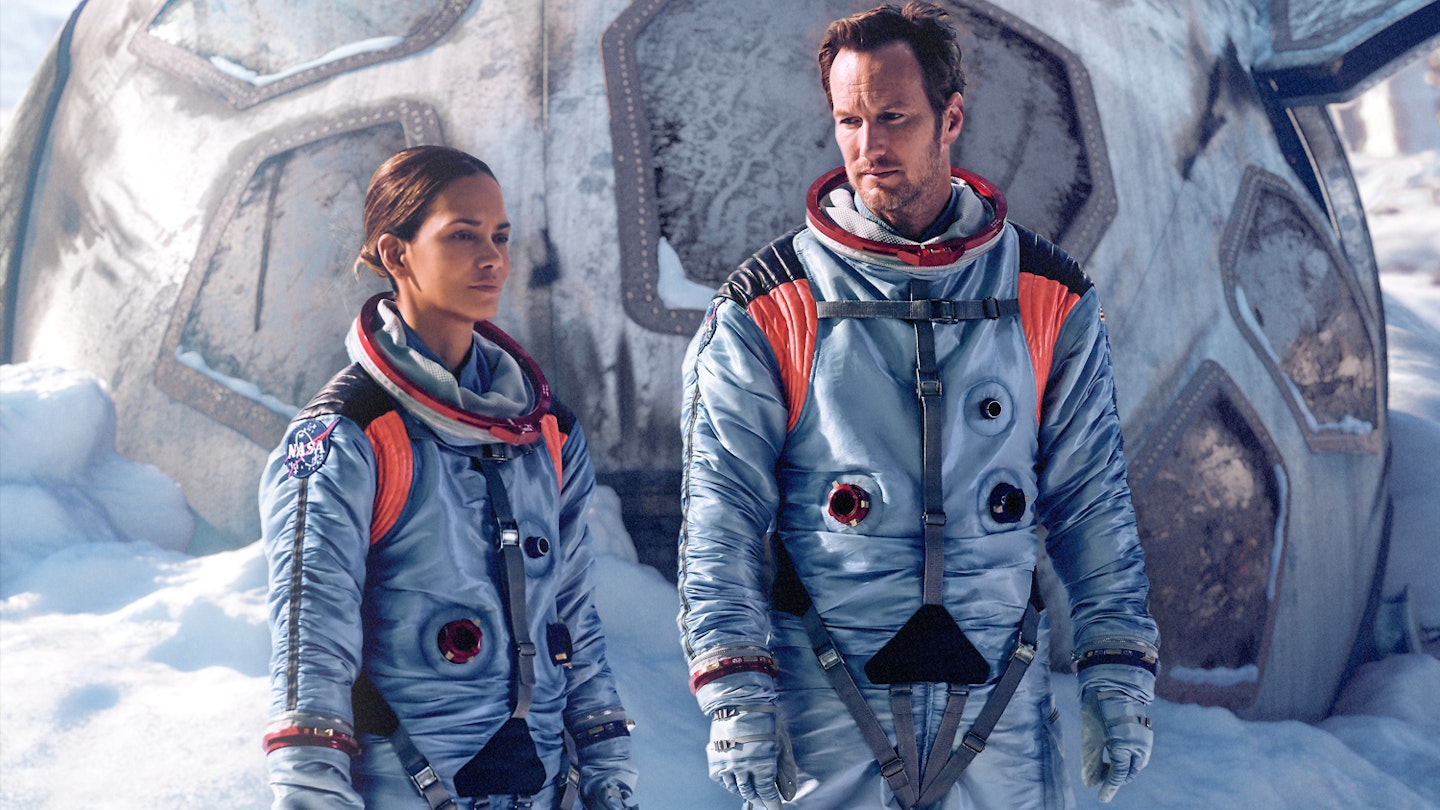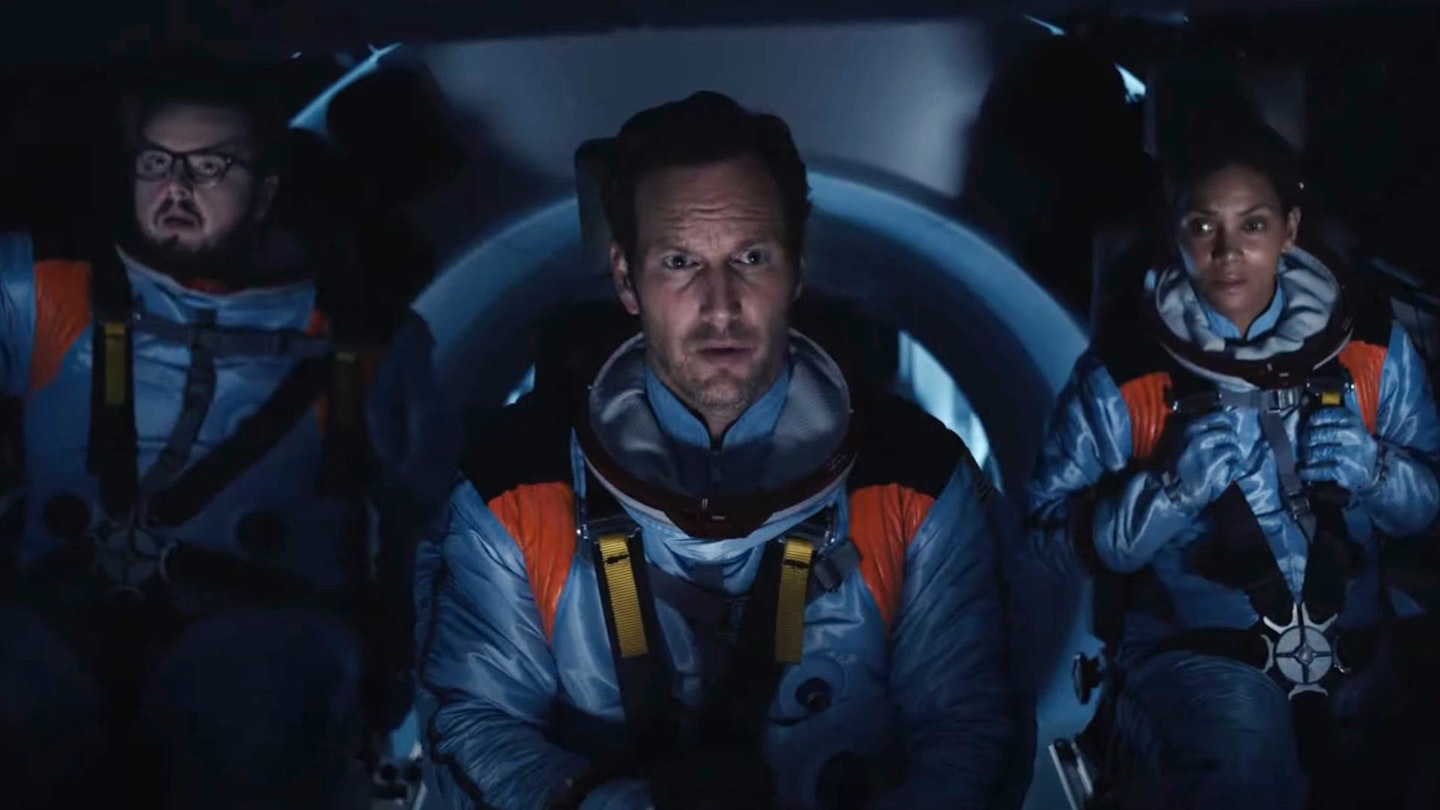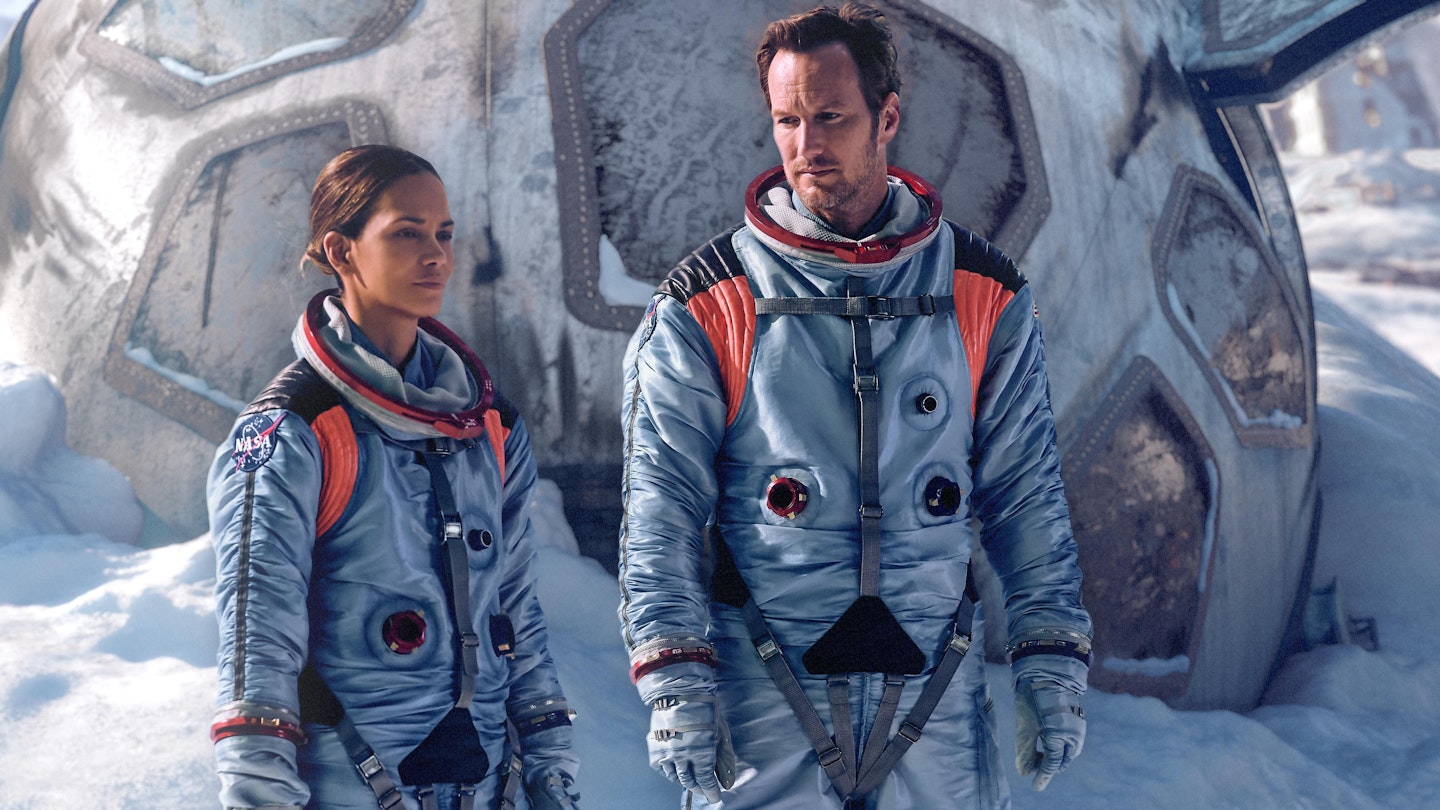With Moonfall, you can practically imagine the pitch meeting that willed it into being. Somewhere in a Hollywood meeting room, thumbs twiddle, a whiteboard sits blank — and then someone chirps up, suddenly struck with inspiration: “What if the moon… fell?” High-fives all round. Take the rest of the day off. That’s lunch.
It’s a high-concept premise truly worthy of Roland Emmerich, a filmmaker who has never met a premise he couldn’t conceptualise higher. The German filmmaker has long built up a lucrative cottage industry for dumb disaster movies — almost single-handedly keeping the genre alive in mainstream cinema — and here, once again, he takes a ridiculous B-movie concept and showers it with an A-movie budget. Moonfall is merely the latest in a long tradition for the Emmerichiverse, a clear and well-worn formula that stretches all the way back to 1996’s Independence Day.

This, his 19th film, has it all: a mad plot (the moon is crashing to Earth, threatening the future of the planet — oh and also, there are aliens); stirring Stars-and-Stripes jingoism (choice line: “I work for the American people!”); epic vistas of endlessly computer-generated apocalyptic destruction (shots of extreme flooding and earthquakes could have easily been swiped direct from 2012 or The Day After Tomorrow); and absolutely atrocious dialogue, spoken by ridiculous, never-plausible characters (“You’re telling me that the moon is the biggest cover-up in human history?”).
There is occasionally room for imagery that borders on the enjoyably bonkers, as the vast and increasingly violent moon looms over the horizon.
At least those characters are largely played by actors willing to have fun with it. Halle Berry, as the de facto NASA head, maintains a steely charisma throughout, dignity largely intact in spite of everything around her. Patrick Wilson, meanwhile, as a ‘best damn pilot in the galaxy’-type astronaut tempted out of disgraced retirement, clearly knows exactly what he’s doing here. John Bradley brings some sweet, puppyish energy to his guy-in-the-chair space-nerd. However, they’re all let down by a screenplay with confused priorities and lame characterisation; the first half-hour gets lost in the mundanities of two divorces and a troubled teenage son’s court case — detours into personal lives which feel deeply irrelevant when the moon is literally falling above them.

When it finally gets going, though, the director slams into planet-destroying overdrive, as what is described as “mounting moon terror” by a TV newscaster quickly sends the Earth into chaos. As it often does in an Emmerich joint, the much-promised global destruction seems like a given, happening almost incidentally, even sometimes on the periphery. After a time, you start to build up a bit of an annihilation immunity — there’s only so much sympathy that can be afforded to computer-generated populations. Through the emptiness of the spectacle, there is occasionally room for imagery that borders on the enjoyably bonkers, as the vast and increasingly violent moon looms over the horizon, Death Star-like. The gravity-gone-haywire notion leads to some fun effects too, the film gleefully throwing the laws of physics out of the window (‘gravity waves’, for example, are essentially tidal waves — that go towards the sky).
Disappointingly, though, Emmerich —who once based an entire film around a largely discredited conspiracy theory (Anonymous) — gives most of the junk science exposition to Bradley’s crackpot character, a nerdy moon truther with IBS and a cat called ‘Fuzz Aldrin’. He’s a conspiracy theorist portrayed as a kooky-but-correct hero, rather than the more recent historical reality that these people are at best spreaders of misinformation, at worst dangerously radicalised.
If that seems thoughtless, there is little here that comes across especially thoughtful; a final act which wades into hard sci-fi territory is nothing we’ve not seen before. This is a film that always leans more Armageddon than 2001: A Space Odyssey (one heroic self-sacrifice scene seems directly lifted from Michael Bay’s dunderheaded space-drilling spectacular), and while there is some guilty pleasure to be had from that kind of nonsense, it’s hard not to wish you could laugh with the film, rather than at it.





